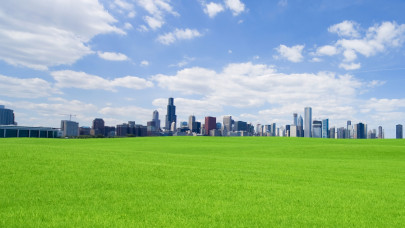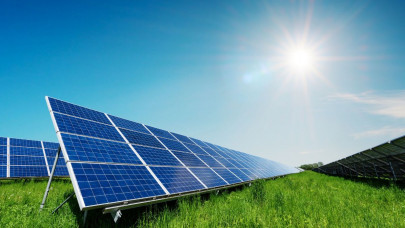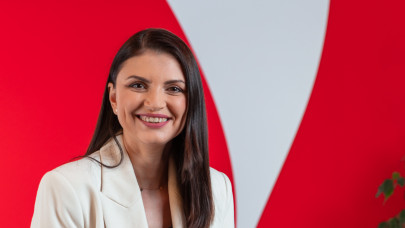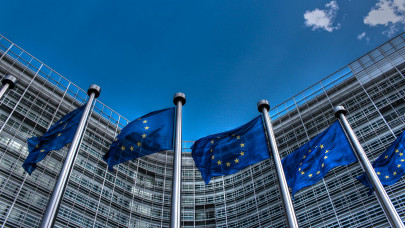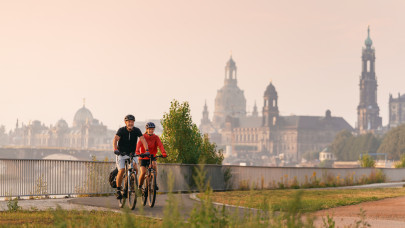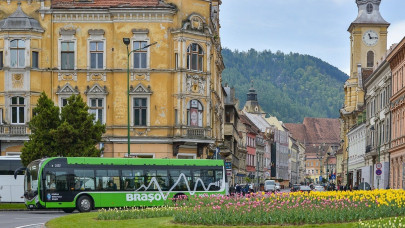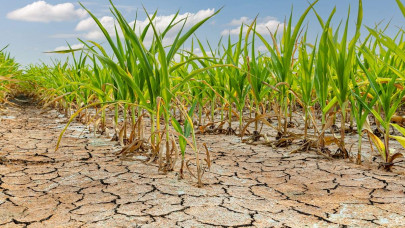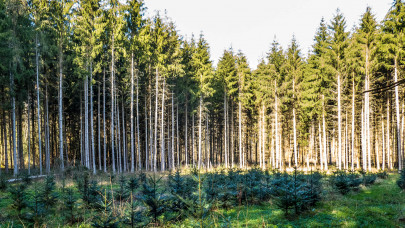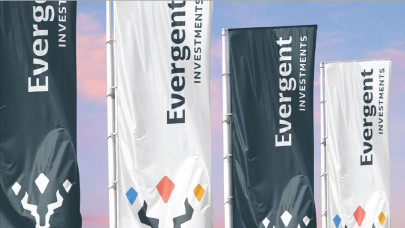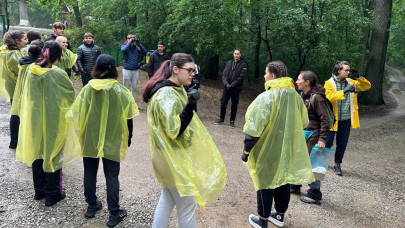Maria-Antoanela Ionita
| 10 July, 2023 at 1:19 AM
Since the EU has banned single-use plastics across member countries, European FMCG and retail companies have been busy finding alternative solutions for their product portfolios and consumer offerings. We take a look at innovations in this area from Romanian and global companies.
Alina Oprea
| 10 July, 2023 at 12:30 AM
Municipalities report difficulties in securing experts with environmental and climate skills, as well as technical and engineering expertise. The European Investment Bank unveils 2022 Municipality Survey findings.
Alina Oprea
| 4 July, 2023 at 12:30 AM
iHunt Technology Import Export, a manufacturer of mobile phones and gadgets, has launched a new product from the green energy range, a photovoltaic panel. It was made in collaboration with the Luxen company, a manufacturer of lighting sources.
Alina Oprea
| 3 July, 2023 at 5:00 PM
ROCA Industry, the first Romanian holding company of construction materials companies, part of the ROCA Investments portfolio, announces the launch of the first Sustainability Report, anticipating the European Directive applicable starting from the financial year 2024, regarding corporate sustainability reporting (CSRD).
Alina Oprea
| 29 June, 2023 at 12:30 PM
ALRO SA, one of Europe's largest vertically integrated aluminum producers, measured by production capacity, inaugurated an $11 million investment in technology and environment protection at its Eco Recycling Facility in Slatina.
Alina Oprea
| 29 June, 2023 at 12:33 AM
Coca-Cola HBC Romania is the first local company, in the FMCG industry to produce a sustainability report to international standards and among the first local companies to publicly present such a report, says Alice Nichita, Corporate Affairs & Sustainability Director at Coca-Cola HBC Romania. She talked to Green Forum about the company's ESG strategy and the company's current sustainability targets and the social initiatives that the company and its employees are involved in.
Alina Oprea
| 28 June, 2023 at 12:10 PM
The European Commission has approved, under EU State aid rules, a €280 million Belgian measure to support ArcelorMittal Belgium in partially decarbonizing its steel production processes. The measure will contribute to the achievement of the EU Hydrogen Strategy, the European Green Deal, and the Green Deal Industrial Plan targets while helping to end dependence on Russian fossil fuels and fast forward the green transition in line with the REPowerEU Plan.
Alina Oprea
| 26 June, 2023 at 5:00 PM
78 million tons of clothes become waste every year, with serious consequences for the environment. Clothing production has doubled in recent years due to overconsumption. We throw away an average of 11 kg of clothes annually, after only 7 wears. Humana People to People representatives draw attention to the negative impact that the overconsumption of such products has on the environment and, ultimately, on people's health.
Alina Oprea
| 22 June, 2023 at 6:00 AM
Genuin becomes the first Romanian business producing linen fabrics that will recycle its own used materials. Genuin, the 100% European linen home&deco workshop, has acquired production, embroidery, and recycling equipment, which will allow the creation of products in a more efficient way, with an emphasis on sustainability and care for the environment.
Alina Oprea
| 20 June, 2023 at 10:00 AM
Last year, Kaufland Romania was involved in the development and implementation of social responsibility projects worth €9 million, including two financing programs through which Kaufland offers non-refundable grants to non-governmental organizations. The company states that it is among the biggest supporters of NGOs that fight for causes such as health, environmental protection, education, healthy living, and sports or culture.
Alina Oprea
| 19 June, 2023 at 10:00 AM
Organizations face a shortage of sustainability skills, and the European Commission warns that labour availability in Europe will fall from 64% to 56% by 2070.
Alina Oprea
| 16 June, 2023 at 5:00 PM
Germany promotes sustainable tourism in Bucharest. On Friday and Saturday, June 16 and 17, between 10:00 and 20:00, the German Tourist Office organizes the German Days festival, an event that will promote sustainable travel to the main European tourist destination for Romanians.
Alina Oprea
| 13 June, 2023 at 11:00 AM
Brasov is one of the ten European cities competing for the title of Green Capital of Europe, in a competition organized by the European Commission (EC), Mayor Allen Coliban announced. He states that he wants to transform Braşov into a truly green, environmentally friendly city.
Alina Oprea
| 8 June, 2023 at 3:00 PM
The Bosch Group focuses on sustainability in all areas of activity. The group has invested €83 million in Romania in 2022, mainly in the development of production units in the Electro-mobility Solutions business sector in Cluj and Blaj, as well as in the field of research and development, within the Bosch Engineering Center in Cluj, says Mihai Boldijar, general manager of Robert Bosch and representative of the Bosch Group in Romania.
Alina Oprea
| 31 May, 2023 at 2:00 PM
2022 global economic losses from natural disasters have reached $313 billion. Romania is in second place in Europe, after Spain, in terms of forest fires. AON, one of the global leaders in the insurance broker market, announces the results of the worldwide study "Weather, Climate and Catastrophe Insight,” which measures how these elements have changed and influenced society, the economy, and the insurance system.
Alina Oprea
| 30 May, 2023 at 5:00 PM
Egger Romania decided to expand the wood recycling activity, which started in 2012, by opening two new waste collection centers (Timberpak), in Brașov and Arad, respectively. Between 2012 and 2022, Egger Romania integrated recycled wood into production in a quantity equivalent to 34,000 trucks of wood waste. In 2022, the company exceeded 21% share of recycled wood in particleboard production (PAL), with a target of 25% for 2025.
Alina Oprea
| 29 May, 2023 at 4:00 PM
ETEX Building Performance (Siniat Romania) is abandoning plastic packaging for gypsum plasterboards manufactured in Turceni.
Alina Oprea
| 26 May, 2023 at 1:00 PM
The introduction of the electronic signature will help save around 1,200,000 sheets of paper in 2023, which means 120 trees saved. CreditAmanet, a Romanian company specializing in short-term lending services and currency exchange, details three good practices that transform the business into a sustainable one.
Alina Oprea
| 25 May, 2023 at 5:00 PM
France bans short-haul domestic flights in favor of train travel. The idea for the ban originally came from a Citizens' Assembly. Under a government decree, any journeys that are possible in less than two-and-a-half hours by train cannot be taken as a flight. France is also cracking down on the use of private jets for short journeys in a bid to make transport greener and fairer for the population.
Alina Oprea
| 24 May, 2023 at 3:00 PM
Schneider Electric, the leader in the digital transformation of energy management and automation, today announced that the Schneider Electric Sustainability School is open for enrolment. Free to access, the digital platform provides a range of interactive courses aimed at equipping companies and professionals with the knowledge and skills needed to improve their sustainability performance.
Alina Oprea
| 23 May, 2023 at 5:30 PM
Investment company Evergent Investments, based in Bacău County, identifies a "growing demand for organic products" and is now investing in organic blueberry production. The company announces that it continues the development of the Private Equity portfolio, increasing the area of the "Blueberry Farms" project to 105 ha, through the purchase of 50 ha through the company Ever Agribio. The new land is intended for the production of organic blueberries, which meets the growing demand for organic products.
Alina Oprea
| 22 May, 2023 at 3:14 PM
This week, the first ecology camp organized as part of the "Cleaning Month in Bihor County" campaign was held, run by the Bihor County Council and Ecolect Group Bihor. This day camp aimed to educate young people about the importance of protecting the environment and ecology, developing sustainable entrepreneurial skills, but also raising awareness of the existence of digital applications that support the community in order to protect the environment, such as Bihor Curat and Forest Inspector.
Alina Oprea
| 22 May, 2023 at 11:27 AM
2,544 ancient beech trees from Nucșoara can be adopted in the "Forest of Immortal Stories". The new project is an initiative of the Commune of Nucșoara in Argeș County, carried out with the support of the Conservation Carpathia team and aims to protect some of the most spectacular ancient beech trees in Europe and to contribute to the tourism development of the area. Anyone can adopt a secular beech tree for RON700 (€140), choosing it from a map of the site or searching by a preferred number.
Alina Oprea
| 17 May, 2023 at 5:09 PM
An online platform calculates your personal carbon footprint over the course of a year in terms of transport, waste, and energy consumption. The calculator is available on the economiecirculara.eu platform has algorithms that are based on international standards and measurements and measure the carbon footprint within a year.


